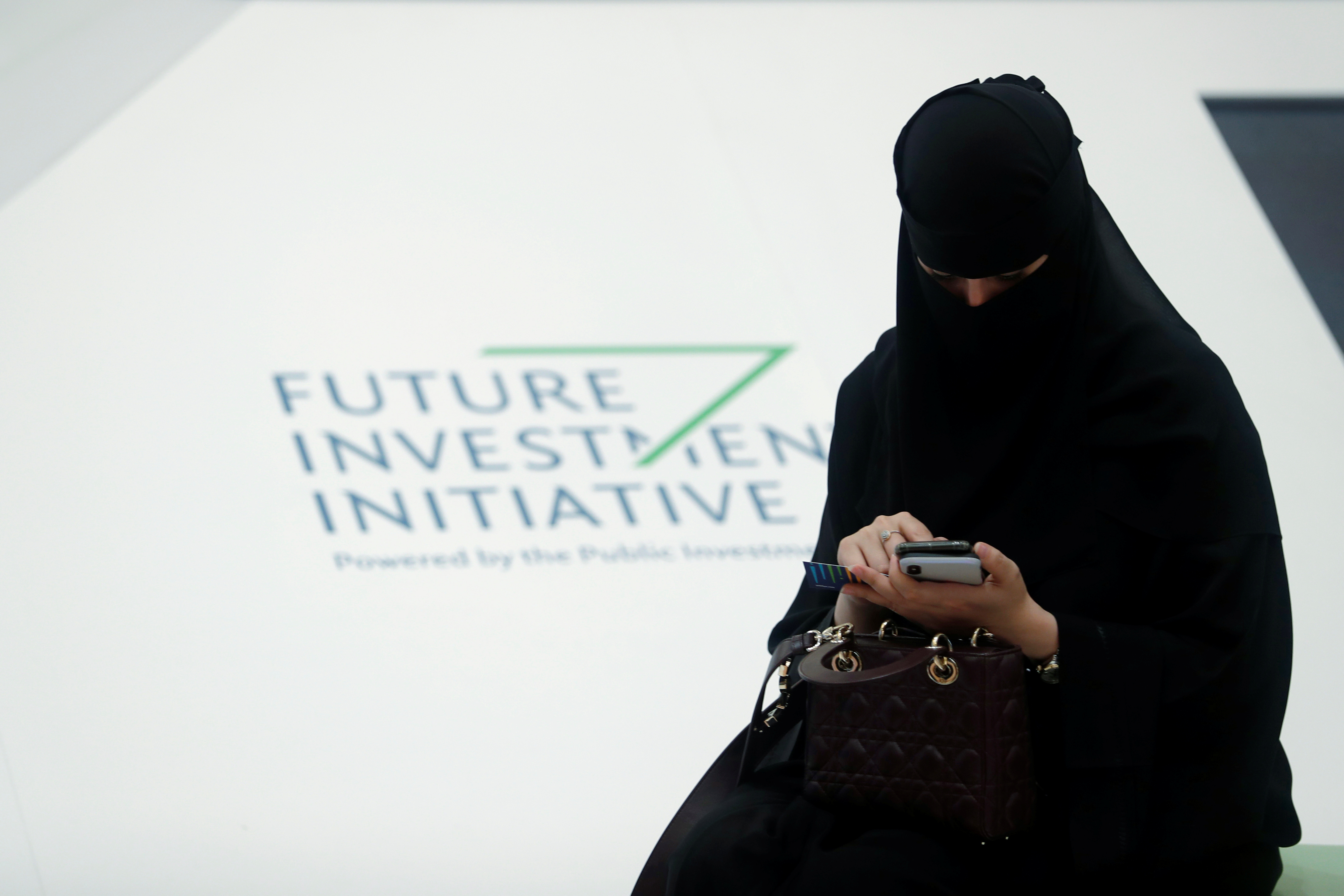Saudi Arabia: U.S. companies return to the kingdom
The smartest insight and analysis on "Davos in the Desert," rounded up from around the web

A free daily email with the biggest news stories of the day – and the best features from TheWeek.com
You are now subscribed
Your newsletter sign-up was successful
The smartest insight and analysis, from all perspectives, rounded up from around the web:
The Saudi conference nicknamed "Davos in the Desert" returned last week — and so did many of the Wall Street A-listers who boycotted it a year ago, said Mohamad Bazzi at The Guardian. Executives and political leaders shunned last year's lavish investment summit in Riyadh, "which took place only weeks after" Saudi agents murdered the journalist Jamal Khashoggi. But their return to the Future Investment Initiative this year signals that "Saudi Arabia is open for business, and U.S. firms don't want to miss out." Executives from JPMorgan Chase, Goldman Sachs, Blackstone, and SoftBank, as well as Steve Mnuchin, the U.S. treasury secretary, and Jared Kushner, President Trump's son-in-law and senior adviser, were among the 300 speakers from 30 countries. The big draw was the planned initial public offering of a small piece of the world's most profitable company, Saudi Aramco, "the state-owned oil monopoly" that finally got the green light to launch from Crown Prince Mohammed bin Salman.
"The IPO is a cornerstone of Prince Mohammed's Vision 2030 plan to make the Saudi economy ready for the post-oil era," said Matthew Martin at Bloomberg, but the $2 trillion valuation the prince originally wanted for Aramco has already been knocked down to between $1.6 trillion and $1.8 trillion. Many investment bank analysts think it's worth substantially less. Aramco has to "contend with the strengthening movement against climate change" and automakers' accelerating shift away from the internal combustion engine. So far, MBS has had trouble delivering on his promise to "wean the kingdom off oil," said Varsha Koduvayur at CNN. Human rights abuses "have marred Saudi Arabia's image and heightened reputational risks for investors." The issues go well beyond Khashoggi. "Foreign direct investment to Saudi Arabia cratered after the crown prince's so-called anti-corruption roundup in 2017," when he imprisoned many of the country's most prominent business figures in the Ritz-Carlton in Riyadh and made them sign away big chunks of their wealth. All the "glitz and glamour" of this conference at the very same hotel won't make investors forget that.
The Week
Escape your echo chamber. Get the facts behind the news, plus analysis from multiple perspectives.

Sign up for The Week's Free Newsletters
From our morning news briefing to a weekly Good News Newsletter, get the best of The Week delivered directly to your inbox.
From our morning news briefing to a weekly Good News Newsletter, get the best of The Week delivered directly to your inbox.
The major tech firms did stay away, said Theodore Schleifer at Vox. But the snubs from the industry mainly show "just how sensitive tech leaders are to media crises." Ultimately, a few CEOs not showing up for a conference matters less "than the fact that Silicon Valley companies like SAP and Amazon Web Services continue to expand in Saudi Arabia." This would have been the perfect time for the world to hold the Saudis to account, said David Andelman at NBCNews. The kingdom desperately "needs deep pockets to fund Aramco's future," but no one was willing to question "the conduct — past or present — of the crown prince." The U.S. will "keep looking the other way" as long as the kingdom maintains its 2017 pledge to pay $350 billion for American arms over 10 years. "Call it a quid pro quo, or simply business as usual." Once again, the Saudis have been able to use their vast oil wealth to buy critical friendships, starting with Donald Trump's.
A free daily email with the biggest news stories of the day – and the best features from TheWeek.com
-
 Quentin Deranque: a student’s death energizes the French far right
Quentin Deranque: a student’s death energizes the French far rightIN THE SPOTLIGHT Reactions to the violent killing of an ultra-conservative activist offer a glimpse at the culture wars roiling France ahead of next year’s elections.
-
 Secured vs. unsecured loans: how do they differ and which is better?
Secured vs. unsecured loans: how do they differ and which is better?the explainer They are distinguished by the level of risk and the inclusion of collateral
-
 ‘States that set ambitious climate targets are already feeling the tension’
‘States that set ambitious climate targets are already feeling the tension’Instant Opinion Opinion, comment and editorials of the day